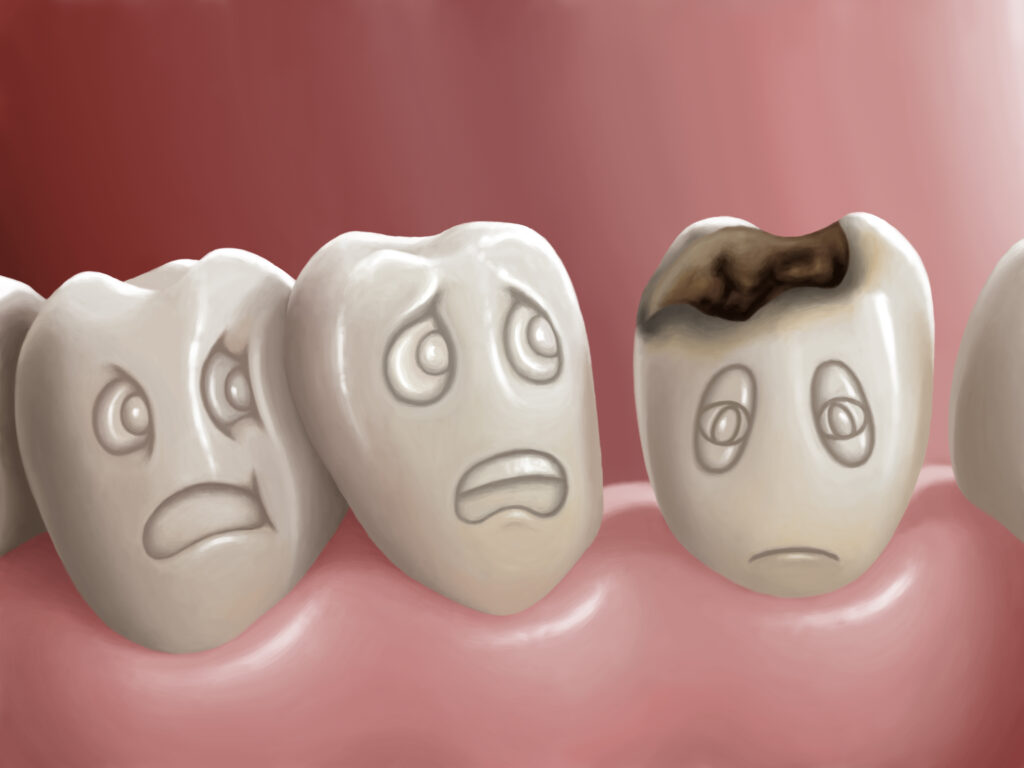Common Causes & Treatments of Tooth Decay

The signs of cavities and tooth decay can vary. Really, it depends on the extent and the location. If you have a cavity that is just starting out, then you may not have any symptoms at all. When the decay gets worse, you may begin to experience spontaneous pain, sensitivity in your teeth, visible holes or even pain when you bite down. Of course, the main problem that a lot of people have is that they have no idea that they have a cavity forming until it is too late. That’s why it’s so important that you go for regular dental check-ups or even cleaning so that you can look after yourself properly.
What Causes Tooth Decay?
Cavities are caused by tooth decay. Dental plaque is a clear yet sticky film that coats your teeth. It happens if you eat a lot of starches or sugar, and then don’t clean your teeth. If this sugar is not removed, bacteria feeds on it and then plaque is formed. Plaque then hardens and it turns into tartar. Tartar makes plaque much more difficult to remove, as it creates a protective barrier for bacteria.
When this happens, plaque then attacks. The acid that is present in plaque will remove the minerals from your tooth and this will cause very tiny holes to appear in the enamel. This is the first stage of cavities. From there, bacteria can then reach your dentin. This layer is far softer than enamel and it is far less resistant to acid. As the decay progresses, the acid will then continue to work through your teeth, moving onto the pulp. This contains nerves and blood vessels. The pulp becomes swollen and irritated, and because there’s nowhere for the swelling to expand, the nerve becomes trapped, causing pain.
Who is at Risk for Tooth Decay?
Decay often occurs in the back teeth. These teeth have way more grooves and pits, and this makes it easier for them to collect food particles. Certain foods and drinks can cling to your teeth as well, including milk and ice cream. Snacking or sipping will fuel the bacteria in your mouth, making it hard for you to stop the build-up from happening. Poor brushing will also make your teeth way more susceptible to decay, not to mention that not getting enough fluoride will make your teeth weaker.
How is Tooth Decay Treated?
The best way for you to find out if you have tooth decay or not would be for you to go and visit your dentist. When you do, they can then talk you through anything you might need to know, and they can also speak to you about any potential problems that may stem from poor oral hygiene. Flossing is a very good way for you to try and prevent tooth decay because it stops bacteria from being able to settle between your teeth. You may also find that it is easier for you to stop plaque from forming if you use an electric toothbrush.
If you need a reliable dentist, call us at 773.697.9861.
